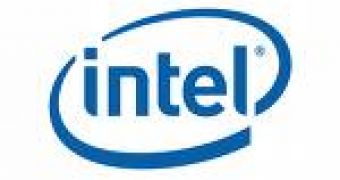Intel announced on Friday that it is going through a formal investigation launched by the U.S. Federal Trade Commission. The company has already faced similar antitrust probes in Europe and Asia.
Intel has been accused for a long time of abusing its dominance over the chip market. At this moment, more than 80 percent of the world's PCs are powered by Intel microprocessors, the company having a $280 billion market share. The accusations come from AMD, which filed a suit against Intel back in 2005.
According to Intel, FTC has already received hundreds of thousands of documents during the agency's two-year-old informal probe. The company is willing to maintain its cooperation as long as it is necessary.
"By proceeding to a subpoena, the Commission will be able to obtain not only information that Intel has already committed to provide but also information from other parties. Consistent with its standard practice Intel will work cooperatively with the FTC staff to comply with the subpoena and continue providing information," Intel revealed.
"The company believes its business practices are well within U.S. law. The evidence that this industry is fiercely competitive and working is compelling. For example, prices for microprocessors declined by 42.4 percent from 2000 to end of 2007. When competitors perform and execute the market rewards them. When they falter and under-perform the market responds accordingly," Intel added.
This week seems to be a hard one for the company, with the second hit coming from FTC investigation. The Korea Fair Trade Commission in Seoul declared on Thursday that Intel had abused the dominant position it has on the local market. The company was imposed to pay $25.6 million fine. Intel announced that it would appeal for sure.
The above mentioned investigations are not the only ones the company faces.
Back in January, a formal probe of Intel was opened by the New York state attorney general. The purpose was to determine whether the state antitrust laws were broken when the company tried to squeeze out AMD. Another charge came from the European Commission in Brussels, which accused the company of attempting to drive AMD out of the market by dramatically reducing prices for its chips and offering important rebates to its customers. Intel's actions were classified as being illegally focused against AMD.
Intel was said by Japan's trade commission to have violated the country's anti-monopoly act in 2005. Although Intel disagreed with the commission's conclusions, it announced accepting the recommendations, thus avoiding a possible trial.
Intel and FTC settled an agreement in 1999, after a long similar investigation.
Besides facing the various government investigations, Intel has been enforced a law suit by AMD, which is accusing the company of acting aggressively against manufacturers that use AMD chips or stores in which AMD chip powered computers are given significant space. Also, AMD says that Intel offers computer makers illegal discounts to use its chips. The trial has been postponed to 2010 by the court in Delaware when hearing the case.

 14 DAY TRIAL //
14 DAY TRIAL //